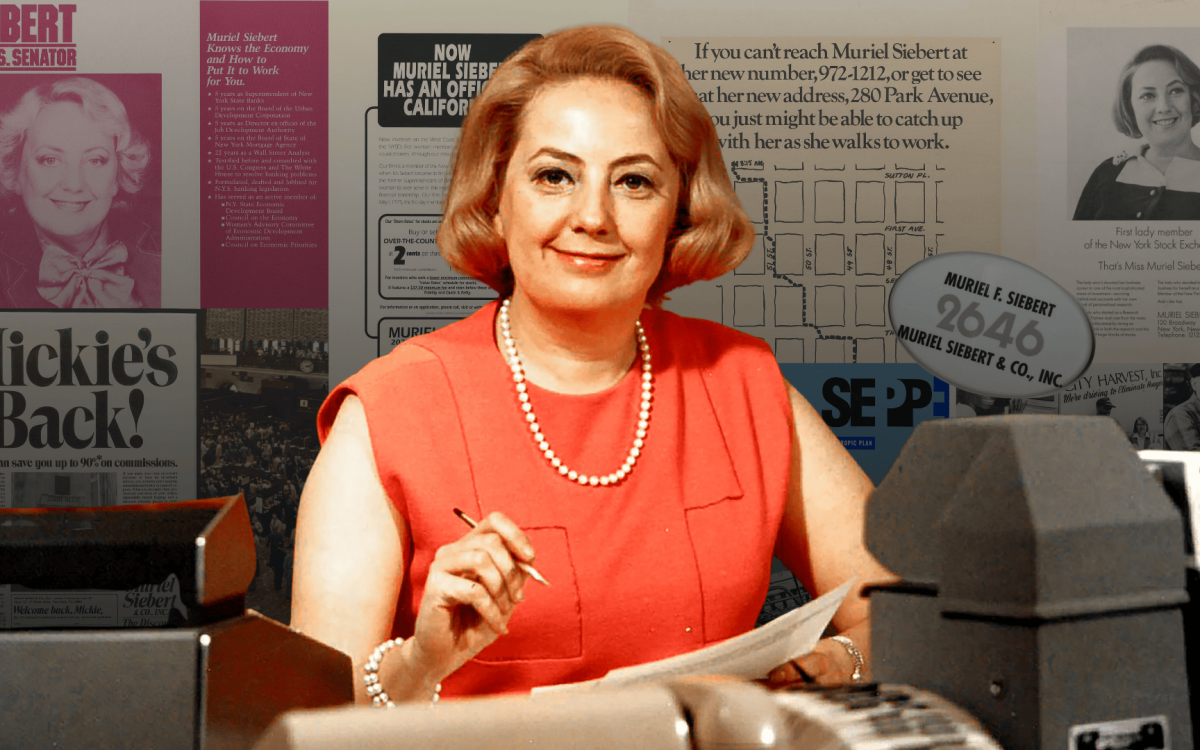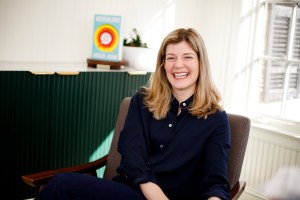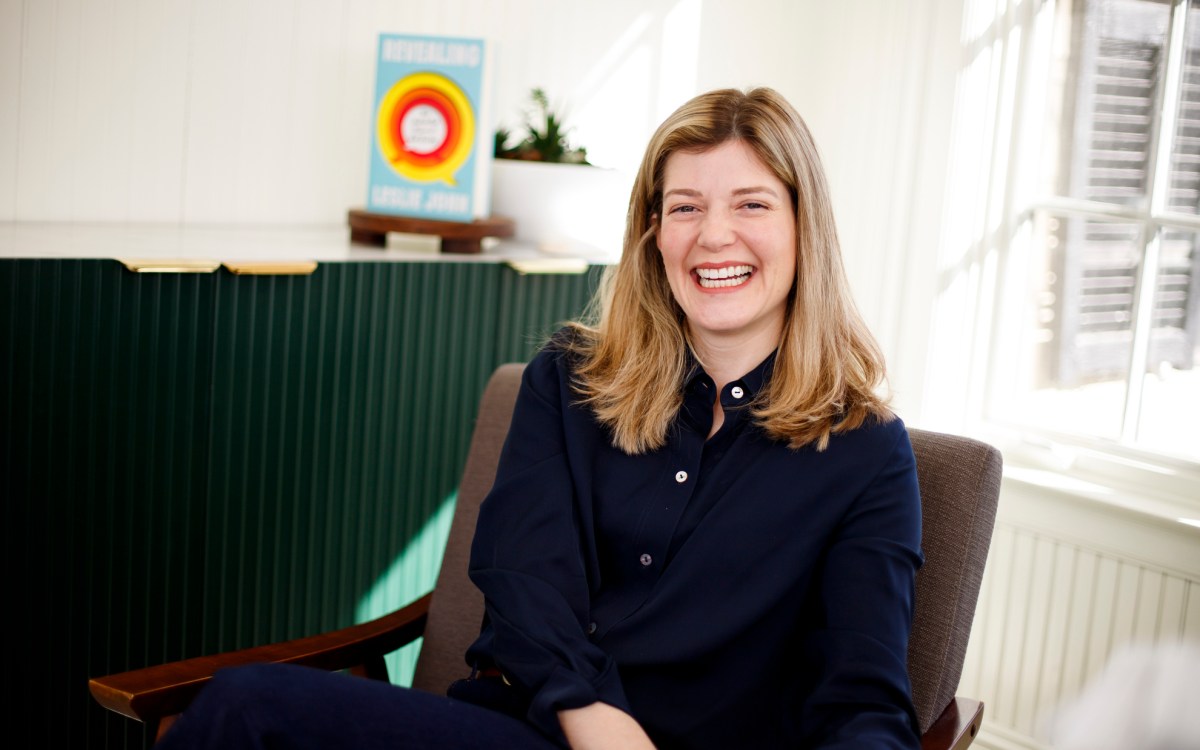Reese Witherspoon returns to Harvard in a different role
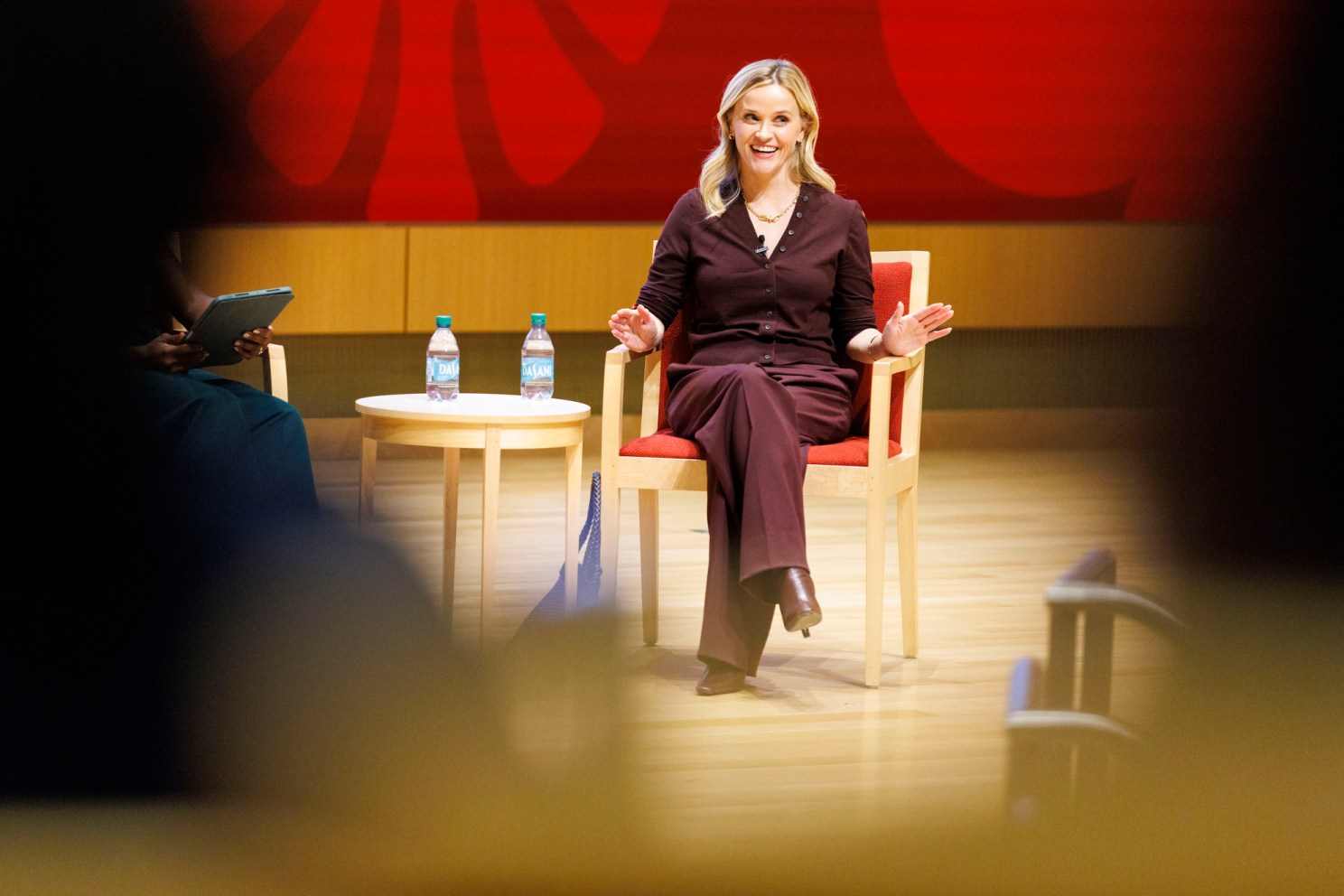
Reese Witherspoon.
Photos by Veasey Conway/Harvard Staff Photographer
‘Legally Blonde’ star was tired of vying for good parts, so she created her own — and a company worth nearly $1 billion
“I just wanted to say something,” Reese Witherspoon said as she took her seat on stage at the Business School’s Klarman Hall. “It’s taken me 25 years, but this is my first day at Harvard!”
Those in attendance at the fireside chat, hosted by the Business School’s Women Student’s Association, were treated to a discussion of Witherspoon’s journey as an actor, producer, and entrepreneur. In a conversation that lasted about an hour, Witherspoon discussed how she grew her media company, Hello Sunshine, into a powerful creator of women-centered movies and television in Hollywood — and one whose partial sale earned Witherspoon $900 million.
Witherspoon also gamely recited some of Elle Woods’ most iconic Harvard-related lines from the classic “Legally Blonde” for the pink-hued attendees. “What, like it’s hard?” she said, to a roar from the crowd.
When asked about the throughline across her career, Witherspoon, 49, said that she’s always been a storyteller. “From the time I was 6 or 7 years old, I’d get all the kids on the playground to all act in a story I wanted to tell,” she said. This corralling also required leadership. “I was really good at persuading people to do things they didn’t want to do, and then working toward a common story.”
At the beginning of her career, Witherspoon fought for roles. Facing doubts from leaders at MGM Studios that she was right for the part of Elle Woods after multiple auditions, Witherspoon was asked to visit the MGM building and stay in character the entire time. Getting the part was exciting — and she continues to find inspiration and joy from the character decades later — but as her career continued, she felt underwhelmed by the lack of dynamic roles available to women in Hollywood.
Witherspoon’s solution was to “break systems.” She encouraged those in attendance to think about where they are situated in different systems within their own lives — their work, families, education, friend groups. “I think it’s important to say, ‘Do you feel comfortable where you sit in these systems?’” she asked. “And could you be the one to address the bigger issue?”
When she was 34, Witherspoon said, she worried that if she didn’t tackle the problem of lackluster representation of women’s stories then, she wasn’t going to leave the business any better off than she found it. “And the truth is, I have a daughter,” Witherspoon said. “I wanted to do it for her, because she deserves better storytelling, and her friends deserve better storytelling.”
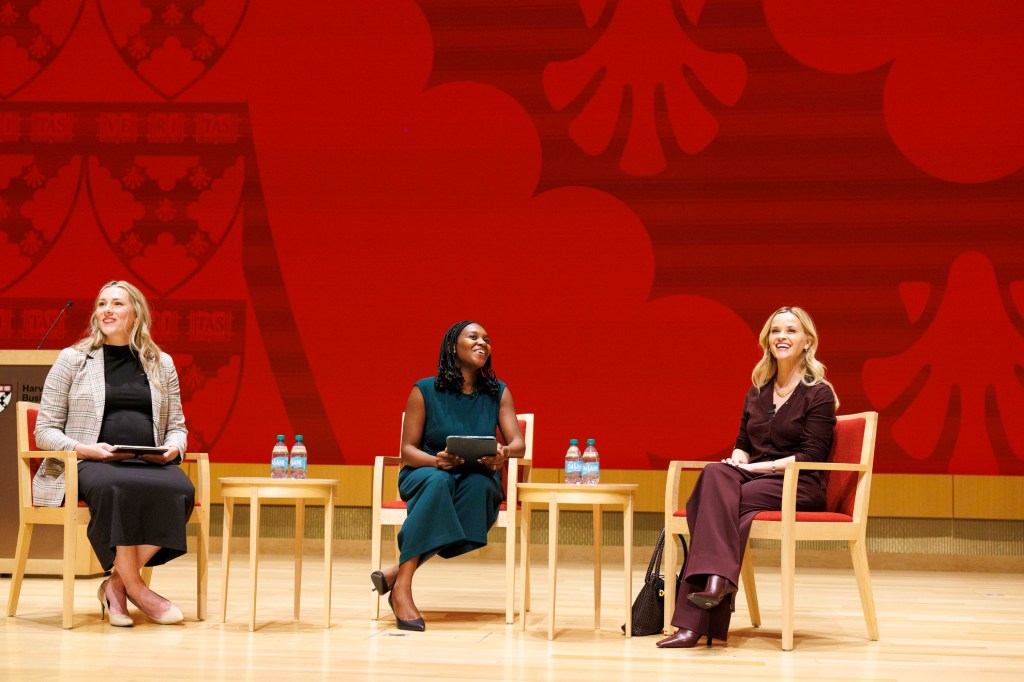
To help remedy that, Witherspoon started a production company, Pacific Standard, which bought books and turned them into movies. The first three purchases were “Gone Girl,” “Wild,” and “Big Little Lies,” all of which became hits — earning three Oscar nominations and eight Emmy wins.
Witherspoon felt on top of the world until she got a call from her accountant. “She goes, ‘You’re breaking even. And I’m not sure you’re going to make payroll unless you go into your own personal finances to pay people,’” Witherspoon recalled. “I was just like, how is that possible? I could not be doing better, picking better winners, getting better budgets.” The trouble, she realized, was that she had the wrong business idea — making money off fees instead of having greater equity in the product.
After she complained about the situation to her friend Seth Rodsky, co-founder of the private equity firm Strand Partners, he said that to create a bigger company with more employees and more impact she should start over and shift the business plan. The transition to a model that emphasized equity, as well as a willingness to work with streaming platforms, pushed her new company into profitability and success.
In 2017, Hello Sunshine became the first company to sell a scripted television show to the new streaming platform Apple TV+. The unwillingness of other studios to do the same, Witherspoon said, helped Hello Sunshine negotiate an equity stake in each piece of content she created for Apple. “They didn’t like it,” she said. “It was precedent-breaking.” But the next time she negotiated, she was able to ask for the same favorable terms. The success accumulated. In 2021, Witherspoon sold a partial stake in the company to Candle Media, a company backed by the investment firm Blackstone, for nearly $1 billion.
The sale, Witherspoon said, helped the company continue to expand past scripted television shows and movies to events, branded social-media content, and Reese’s Book Club — all of which highlight women-centered stories.
Asked about her experience as an early adopter of new technologies and the potential of artificial intelligence, Witherspoon reflected on the opportunities she seized by embracing social media and streaming before other industry leaders. “You can’t fear the future,” Witherspoon said. “You have to jump in and jump in in a messy way.”
When it comes to adopting technologies like AI, perfection is impossible. “There are a lot of perfectionists in this room,” Witherspoon said. “You have to be perfect to get here. You don’t have to be perfect to get out of here.”
The crowd’s enthusiasm was on display during the Q&A session. Among the top questions: “Does your company have summer internships?”
Witherspoon smiled. “It does!”
